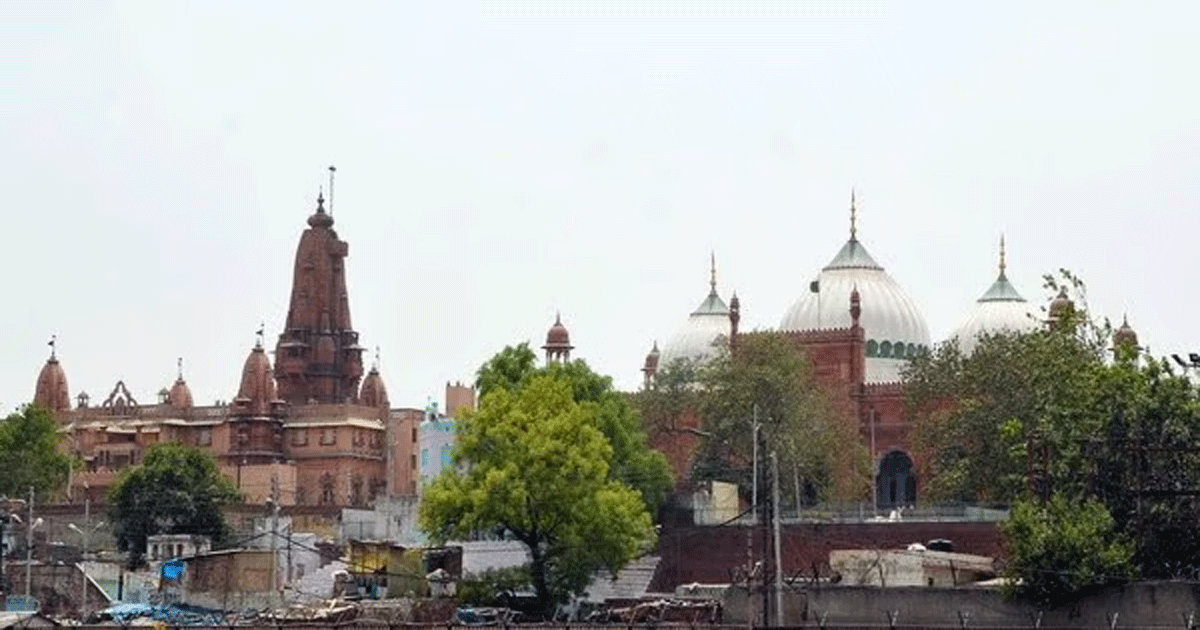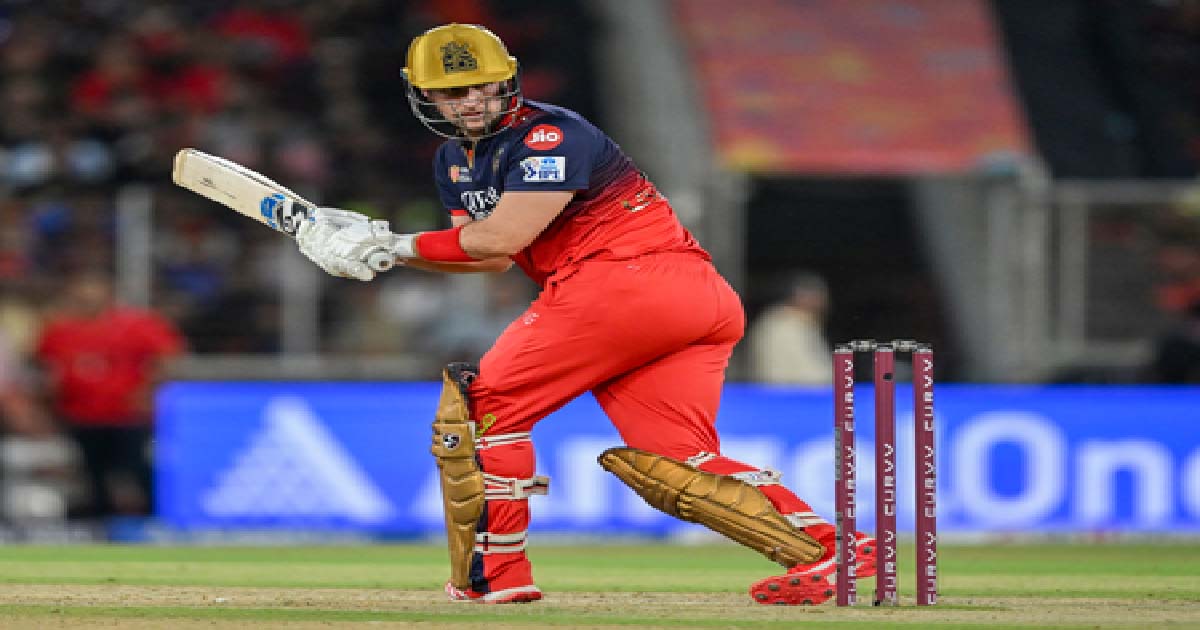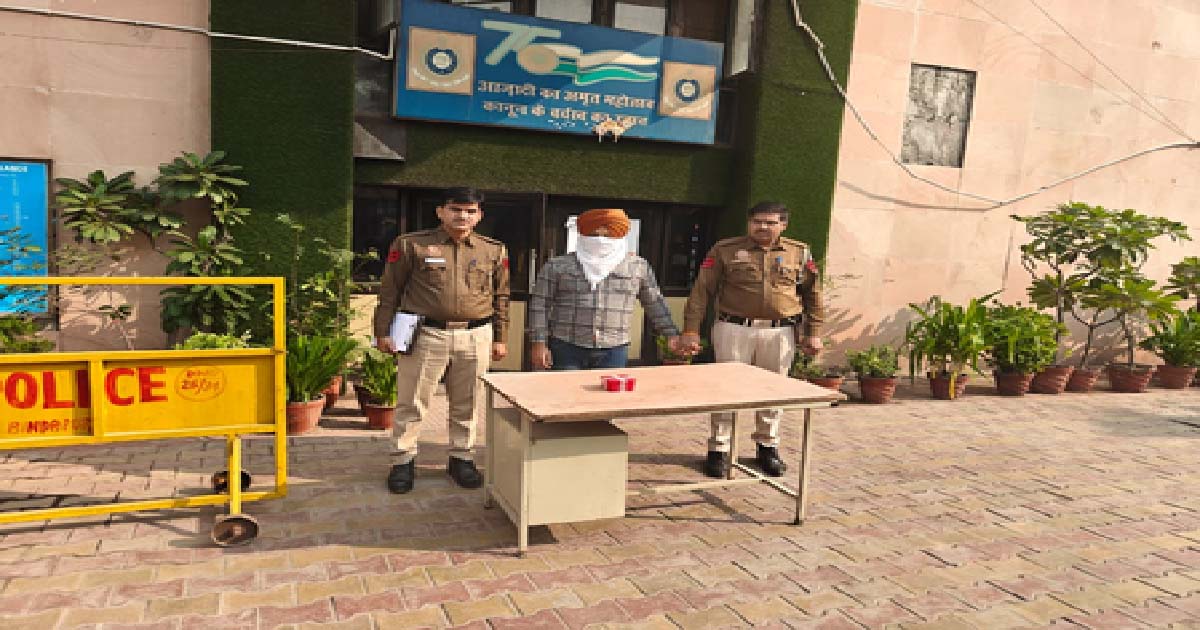National News
Supreme Court To Hear Mosque Committee’s Plea In Shahi Eidgah- Krishna Janmabhoomi Dispute On January 15

The Supreme Court would on January 15 hear a plea of the mosque management committee against an order rejecting its petition in the Shahi Eidgah- Krishna Janmabhoomi dispute in Mathura, UP.
A single judge bench of the Allahabad High Court on August 1, last year, rejected the plea of the Committee of Management, Trust Shahi Masjid Eidgah, challenging the maintainability of 15 cases related to the temple-mosque dispute in Mathura, and ruled the “religious character” of Shahi Eidgah needed to be determined.
A bench comprising Chief Justice Sanjiv Khanna and Justice Sanjay Kumar, on December 9, last year commenced the final hearing in the case and the matter is set to come up before the bench on January 15, according to the SC website.
One of the Hindu parties, represented by advocate Barun Sinha, had argued the mosque committee could have moved the Allahabad High Court against the single judge’s order over the dispute.
He said the plea of the mosque committee was not maintainable in the top court at the present stage.
The lawyer referred to the Allahabad High Court rules and argued, “In view of Chapter 8 of the Allahabad High Court Rules, a special appeal before the division bench of the high court would be maintainable.”
He said an appeal in the Supreme Court was not “maintainable against the order of a single judge bench of the high court” and an intra-court appeal in the high court should have been filed. The lawyer therefore sought the plea to be dismissed.
On November 29, last year, the CJI-led bench agreed to hear the plea.
“This we will hear at length. We will take it up on December 9, at 2 pm… We have to decide what is the legal position,” the CJI said.
Speaking for the bench, the CJI prima facie felt that an intra-court appeal would lie against the single judge bench’s August 1 order of the high court.
“We will certainly give you an opportunity to argue,” the bench said.
The mosque committee said the suits filed by Hindu litigants over the dispute over the Krishna Janmabhoomi temple, and the adjoining mosque, violated the Places of Worship (Special Provisions) Act, and were therefore not maintainable.
The 1991 Act prohibits changing the religious character of any shrine from what existed on the day of the country’s Independence. The Babri Masjid-Ram Janmabhoomi dispute was however kept outside it purview.
The cases filed by the Hindu party side seek the “removal” of the Aurangzeb-era mosque, claiming it was built after the demolition a temple that once stood there.
The high court said the 1991 Act did not define the term “religious character” and the “disputed” place couldn’t have a dual religious character — of a temple and a mosque, which are “adverse to each other” — at the same time.
“Either the place is a temple or a mosque. Thus, I find that the religious character of the disputed place as it existed on August 15, 1947, is to be determined by documentary as well as oral evidence led by both the parties,” the high court said.
The high court concluded the cases did “not appear to be barred by any provisions of the Wakf Act, 1995, the Places of Worship (Special Provisions) Act, 1991, the Specific Relief Act, 1963, the Limitation Act, 1963 and Order XIII Rule 3A of the Code of Civil Procedure Code, 1908”.
Hindu side’s advocate Vishnu Shankar Jain had said his client would move the Supreme Court for vacating its stay on a previous Allahabad High Court order allowing the mosque’s survey.
The mosque management committee and the UP Sunni Central Waqf Board argued the suits were barred under Places of Worship Act and other laws.
On May 31, 2024, the Allahabad High Court reserved its judgment on the maintainability plea after hearing both sides.
But the court reopened the hearing at the request of Shahi Eidgah counsel Mehmood Pracha.
The Mathura dispute mirrors the legal tussle in Varanasi, where the Gyanvapi mosque and the Kashi Vishwanath temple are located next to each other.
National News
High price tag likely factor behind RCB releasing Livingstone: Anil Kumble

New Delhi, Nov 24: Former India captain Anil Kumble believes that Liam Livingstone’s high price was likely a factor in the Royal Challengers Bengaluru’s decision to release him into the IPL 2026 auction pool.
Livingstone played for RCB in their title-winning IPL 2025 season after being bought for Rs. 8.75 crore at last year’s mega auction. However, he had an underwhelming time – scoring 112 runs in eight innings with a strike rate of 133.33, including one half-century, and taking two wickets in nine overs with an economy rate of 8.44.
It would be interesting to see if RCB or any other team ropes him in for the IPL 2026 auction, to be held in Abu Dhabi, on December 16. “Releases are always tough calls. Liam Livingstone is someone I enjoyed working with closely, and he was extremely good for Punjab in IPL 2022, probably his best IPL season. He can change the game single-handedly in just a few overs with his powerful batting.”
“What makes him special is his bowling flexibility; he bowls leg spin to right-handers and off spin to left-handers, plus he’s a good fielder, making him a complete package. Unfortunately, he didn’t have a great IPL season for RCB last year and also missed out on selection for England.”
“Otherwise, I’m sure other franchises would be interested in him. His high price tag was likely a factor in the release. RCB also needs to find backup options, both an overseas fast bowler and an Indian fast bowler to support their main bowling attack of Bhuvneshwar Kumar and Josh Hazlewood. This need for bowling depth might be another reason behind this tough call,” said Kumble, a former RCB skipper, on JioStar.
Saba Karim, former India wicketkeeper-batter and national selector, questioned RCB’s decision to release young batter Swastik Chikara. “It’s a splendid position for RCB to be finally being called as the defending champions. Talking about their auction plans, they can still buy back Liam Livingstone in the mini-auction if he doesn’t go for too high a price.”
“I’m also surprised they didn’t retain Swastik Chikara, who was an excellent buy last season after his prolific performances in the Syed Mushtaq Ali Trophy. I was actually expecting him to get a game, but he didn’t play a single match and now, hasn’t been retained. If RCB wants to strengthen their batting lineup, there are several Indian uncapped batsmen they can target in the auction to build their squad depth for the upcoming season,” he added.
Crime
Delhi Police arrests thief who stole jewellery from relative’s house; gold items recovered

New Delhi, Nov 24: Delhi Police on Monday arrested a thief who stole jewellery from his own relative’s house. The Bindapur Police Station team of the Dwarka district recovered the stolen gold items following the arrest.
According to a statement released by the Dwarka Police, the team recovered one gold chain with a locket, another gold chain, one pair of gold chains, one pair of gold earrings, two gold rings, and a 20-gram gold biscuit at the instance of the accused.
On November 9, an online e-FIR (No. 80106448/25) under Section 305 of the Bharatiya Nyaya Sanhita (BNS) was received at Bindapur Police Station. The police team reached the location and met the complainant, Manjinder Kaur, wife of Aslam Saleem and a resident of Arya Samaj Road, Uttam Nagar, Delhi. She reported that unknown persons had stolen jewellery from her residence. Based on her complaint, the aforementioned e-FIR was lodged.
Maintaining a zero-tolerance approach as directed by the DCP of Dwarka District, a dedicated crack team from Bindapur Police Station was formed to solve the case and apprehend the culprit. The team comprised Head Constable Neeraj, Head Constable Ashok, Constable Rajesh Dagar, and Constable Ashish, under the supervision of Inspector Naresh Sangwan, Station House Officer, and overall supervision of Rajkumar, Assistant Commissioner of Police, Dabri.
In pursuit of the investigation, the team visited the crime spot and examined CCTV footage from the house and surrounding areas. Notably, there were no signs of forced entry, no locks or doors had been broken leading the police to suspect involvement by someone familiar with the house or residing in the same building.
During the enquiry, it came to light that a cousin of the complainant had visited and stayed at the house for three days. Police questioned the cousin, identified as Parmjeet Singh, a resident of GTB Nagar, Lalhedi Road, Ludhiana, Punjab. When questioned, Parmjeet initially introduced himself as Sub-Inspector Parmveer Singh. However, he failed to produce any identity card and could not give a satisfactory answer regarding his alleged posting.
As his statements appeared suspicious, police conducted a more thorough interrogation. During sustained questioning, Parmjeet admitted that he worked as a commission agent dealing in old cars and ultimately confessed to committing the theft at the house of the complainant, who is the daughter of his maternal aunt.
He further revealed that he had hidden the stolen jewellery at his maternal grandfather’s house in Ambota, Himachal Pradesh, concealing it inside a bed. Based on his disclosure, Parmjeet was arrested, produced before the court, and placed under police remand. A police team accompanied him to Himachal Pradesh, where the stolen items were successfully recovered.
Further investigation is underway.
Crime
Dahisar Woman Dies By Suicide After Years Of Alleged Abuse; Husband Arrested For Harassment And Abetment By MHB Police

Mumbai: A 36-year-old woman, Sapna Tribhuvan, allegedly died by suicide by hanging herself with a cloth at her residence in Dahisar West after enduring prolonged mental and physical abuse over trivial family matters. Her husband, Gautam Tribhuvan, has been arrested by the MHB police for allegedly harassing her and abetting her suicide.
According to the FIR, the incident occurred on Monday, November 17, between 12 pm and 1 pm at Navagaon, Dahisar West.
The complainant, Sangeeta Mhaske, 54, has been residing in Nashik for the past five years, where she works in a reputed hospital. Sapna was her daughter and had married Gautam in November 2007.
According to Mhaske, Gautam began mentally and physically abusing Sapna shortly after their marriage over trivial household issues. He allegedly assaulted her frequently. Sapna had informed her mother about the harassment several times.
In 2021, exhausted by the constant abuse, Sapna left Gautam’s house with her two children and went to live with her mother. During this period, Gautam did not visit her even once, but continued to abuse and threaten her over the phone. Following these threats, Sapna filed a petition against him in family court. In May 2025, the couple reached a settlement on Gautam’s assurance, and Sapna returned to his Dahisar residence with their children, hoping for a better future.
Initially, things improved, but Gautam soon resumed mentally and physically abusing her. During this time, Sapna learned that he was allegedly having an extramarital affair. When she confronted him, he refused to end the relationship and allegedly told her to either leave the house or die by suicide. This caused her immense mental stress, and on Monday, November 17, she allegedly ended her life.
On receiving the news, Sangeeta Mhaske rushed to Mumbai with her son and daughter-in-law. At Bhagwati Hospital, she learned that doctors had declared Sapna dead. MHB police reached the spot and recorded her statement, in which she alleged that her daughter was consistently harassed, beaten, and tortured by Gautam, who was also involved in an extramarital affair.
Based on her complaint, the police registered a case against Gautam for harassment and abetment to suicide. He was arrested on Tuesday and later produced before a local court in Borivali, which remanded him to police custody.
-

 Crime3 years ago
Crime3 years agoClass 10 student jumps to death in Jaipur
-

 Maharashtra1 year ago
Maharashtra1 year agoMumbai Local Train Update: Central Railway’s New Timetable Comes Into Effect; Check Full List Of Revised Timings & Stations
-

 Maharashtra1 year ago
Maharashtra1 year agoMumbai To Go Toll-Free Tonight! Maharashtra Govt Announces Complete Toll Waiver For Light Motor Vehicles At All 5 Entry Points Of City
-

 Maharashtra1 year ago
Maharashtra1 year agoFalse photo of Imtiaz Jaleel’s rally, exposing the fooling conspiracy
-

 National News1 year ago
National News1 year agoMinistry of Railways rolls out Special Drive 4.0 with focus on digitisation, cleanliness, inclusiveness and grievance redressal
-

 Maharashtra1 year ago
Maharashtra1 year agoMaharashtra Elections 2024: Mumbai Metro & BEST Services Extended Till Midnight On Voting Day
-

 National News1 year ago
National News1 year agoJ&K: 4 Jawans Killed, 28 Injured After Bus Carrying BSF Personnel For Poll Duty Falls Into Gorge In Budgam; Terrifying Visuals Surface
-

 Crime1 year ago
Crime1 year agoBaba Siddique Murder: Mumbai Police Unable To Get Lawrence Bishnoi Custody Due To Home Ministry Order, Says Report












